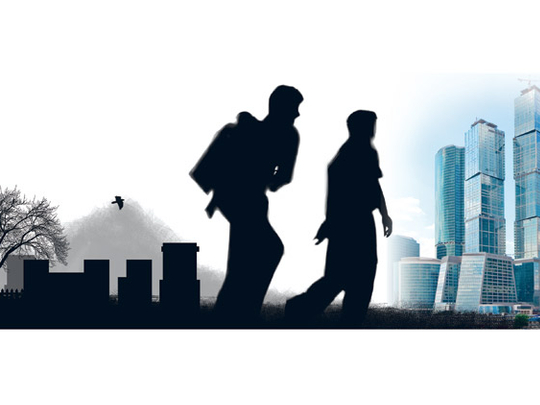
Cities and people resemble each other. This ad-lib similarity and bonding between humans and their cities plays a role in shaping our identities as well as the identity of the place. We are born the day our cities are built and when they are demolished, not only do we lose our heritage but we lose parts of bodies as well.
"Bodies have memories," says the notable Algerian writer Ahlam Mosteghanemi in her award-winning novel Memory in the Flesh. And places have memories too. Our cities live in us the same way we live in them. Even when we depart our cities for one reason or another, they still remain in us.
Sometimes, circumstances force people to leave their hometowns. Yet, there is always a city that is close to one's heart. The new place is just a stopover and we long for the day we can go back to our loved homes. People love their cities, even if they oppress them.
Throughout history, prophets and great leaders were forced to leave their loved cities. Makkah was the most favourite city for Prophet Mohammad (Peace Be Upon Him). Yet, he was forced to leave the city that was dear to his heart. He died and was buried in Madinah.
Despite their deep love for their cities, many people do their best to leave them and move to other places, be it for tourism, work, or immigration. This is an example of the temporary solutions we always adopt, an odd habit of ours. We exert a lot of effort and time to escape from our cities, despite the remoteness of the new place and the religious and political differences. This is love, the Arabic way.
Common experience
The International Organisation for Migration estimates the number of migrants around the world at 200 million, 30 million of whom are illegal immigrants.
A friend tells me that in most Arab capitals you see hundreds of people queuing in front of foreign embassies and consulates every day, hoping to get an entry visa, or rather an escape visa, to go to the same countries they were cursing and chanting against the night before. When they get there, they soon forget what their home countries had done for them and because "the grass always looks greener on the other side of the fence," they are disappointed when they don't encounter the "paradise" they thought they were going to find. Ironically, they have left the East and are not welcome in the West. Their own cities, however, never forget them and will always have feelings for them.
However, we sometimes find excuses for those fleeing their cities. Some cities do oppress their people. That's why they leave them in pursuit of better lives.
On the other hand, some cities suffer at the hands of their citizens. The worst kind of suffering is the one that comes from within, when accepting the ‘other' becomes problematic for some people. This marginality in thinking hinders the real growth of cities. Cultural and social diversity is a key strategic component for the development of cities. The relationship between the newcomers and the local residents sometimes gets out of control and results in confrontations and struggles between the two sides. Cities often get trapped in the middle of these conflicts and get lost in their love for both parties.
Sometimes when city people mistreat immigrants or visitors this hurts the city itself, and deepens its suffering. When a city loses its cultural and social diversity, innovation is sacrificed at the hands of its people.
In his poem The Road to the Top of the Hill, the Emirati poet Ebrahim Mohammad Ebrahim writes:
"You are born in one country
Another is born in you
A third you hear about
In a time of loss, which of the bitter countries would you choose?"
Jamal Al Shehhi is an Emirati writer.









